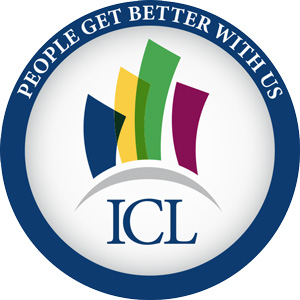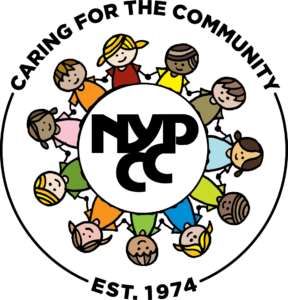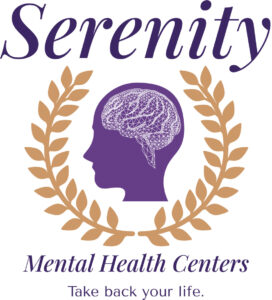-
Teen Drug Use Remains Near Historic Lows, NIH-Supported Survey Finds
For the fifth year in a row, use of most substances among teenagers in the United States has continued to hover around the low-water mark reached in 2021. The findings come from the latest report of the Monitoring the Future Survey, an annual survey of drug use behaviors and attitudes among eighth,...
-
Governor Hochul Announces Tools to Improve Digital Wellness Among New Yorkers
With Tech Devices Popular as Gifts, New York State Provides Free Educational Materials Aimed at Safely Navigating the Modern Digital Landscape Online Resources Complement Governor’s Nation-Leading Commitment to Protect Youth Mental Health and Establish Distraction-Free...
-
The “Good Son” Trap: How Role Conflict Between Parents and Partners Causes Burnout and Depression
In many cultures, being a “good son” is not just an identity. It is a lifelong obligation shaped by loyalty, sacrifice, and responsibility. For South Asian men in particular, this role often comes with explicit expectations to prioritize parents’ needs, provide financial support, and preserve...
-
Stress or ADHD? What Holiday Breaks Reveal About College Students’ Struggles
When college students return home for holiday breaks, families often notice changes that were easier to overlook during the semester. A student who once seemed capable may now appear overwhelmed, disorganized, emotionally reactive, or shut down. Parents begin to ask whether they are seeing typical...
-
2025 Behavioral Health Trends Recap – Progress, Setbacks, and the Road to 2026
In early 2025, I called out 10 major trends shaping the behavioral health (BH) landscape: integration of behavioral and physical health, mental health parity, digital health and AI, federal policy shifts, prevention, vulnerable populations, workforce development, and overdose prevention. At...
-
New York State Releases Landmark Maternal Mental Health Policy Roadmap
In a major step forward for maternal mental health policy, the New York State Office of Mental Health (OMH) has released a comprehensive 128-page report detailing actionable recommendations, systemic challenges, and aspirational goals to improve mental health outcomes for birthing persons across...
-
The Silent Battlefield: Synthetic Opioids Hidden in THC Vapes
The overdose crisis has always been a war, but the battlefield keeps shifting. Today, the weapon isn’t a needle or a powder bag. It’s a vape pen—sleek, pocket-sized, sold at a gas station counter, and marketed as harmless cannabis. In reality, these cartridges are Trojan horses carrying...
-
Brooklyn Conservatory of Music Breaks Ground on New Campus to Expand Music Therapy and Education
Brooklyn Conservatory of Music (BKCM), a 128-year-old nonprofit transforming lives and building community through music, has announced that it has broken ground today on a new 12,000-square-foot campus at One Prospect Park West. The state-of-the-art facility will double BKCM’s capacity to deliver...
-
NY State Office of Mental Health Hosts Forums to Address Federal Policy Change
The New York State Office of Mental Health is hosting a series of forums to discuss recent federal actions and plan for potential impacts on New York’s mental health system. These forums – five virtual and one in-person – follow two town hall meetings that were hosted by the agency this...
-
Most Mental Health Crisis Calls Still Go to 911, Not 988
Great Lakes Region Leads with New Training for 911 Dispatchers Handling Suicidal Callers As Suicide Prevention Month continues, the International Academies of Emergency Dispatch® (IAEDTM) is reminding everyone of the continuing role of 911 Emergency Dispatchers in suicide prevention and...
-
Hope, Healing, and Peer Support: A Path Through Depression
According to the National Institute of Mental Health (NIMH), an estimated 1 in 5 teenagers experience depression, and 1 in 12 adults have experienced depression in their lifetime.¹ Depression can be a devastating illness; symptoms may include persistent sadness, hopelessness, loss of enjoyment in...
-
From Childhood Fears to Adult Anxieties: Understanding Anxiety Across the Lifespan
Anxiety is a universal human emotion that we all experience, both children and adults alike. In fact, it is normal to experience some anxiety and worry at times, as anxiety can be adaptive in nature and serve both as a motivator and as a means of keeping us safe. For example, anxiety can indicate...
-
The Connection Between Tobacco, Depression, and Anxiety
Despite decades of public health efforts, tobacco use remains a persistent public health issue, especially for individuals experiencing depression and anxiety. These two common mental health conditions are closely linked to tobacco use, both in terms of higher smoking prevalence and the emotional...
-
Staff Engagement Improves Patient Wellbeing in Psychiatric Settings
Inpatient psychiatric units are often the first point of stabilization for individuals in crisis, many of whom are experiencing acute anxietFy or depression. Standard treatment models include group therapy, individual sessions with psychiatrists and therapists, medication management,...
-
Telehealth Versus Face-to-Face Therapy for Treating Anxiety: Evidence-Based Considerations for Clinicians
Telehealth has transformed the delivery of psychotherapy, particularly in the treatment of anxiety disorders. This article examines evidence comparing telehealth and face-to-face therapy outcomes for anxiety, explores therapeutic modalities effective in each format, outlines best practices for...
-
The Overlapping Roots of Mental Health Disparities: Poverty, Racism, and Trauma as Social Determinants
Mental health cannot be fully understood — or effectively addressed — without considering the powerful forces that shape people’s everyday lives. Poverty, racism, and trauma are more than just challenges individuals face; they are deeply embedded social determinants of mental health that...
-
A Harm Reduction Approach to Informed and Compassionate Care
Harm Reduction allows us to consider and implement practices that help individuals make safe, viable choices in support of overall wellness. Harm Reduction is also “a movement for social justice built on a belief in, and respect for, the rights of people who use drugs”1 and is “a key pillar...
-
Ira Minot, MHNE Founder, Bids Farewell: Looking Forward to New Challenges
Mental Health News Education (MHNE) recently held its 2025 Leadership Awards Reception, where Founder and former Executive Director Ira Minot, LMSW, was honored with the Founder’s Legacy Award for his more than 25 years of visionary leadership. Presenting the award was Ashley Brody, CEO of Search...
-
360 is More Than Just an Address, It’s a Model of Care for The Mental Health Association of Westchester
In 2022, preliminary data released by the CDC indicated that more than 100,000 people had died from drug overdoses (CDC). This total marks a new annual record in nationwide drug overdose deaths and is twice the size of 2015’s record, underscoring the alarming escalation of this crisis (NPR, Times...
-
How Multidisciplinary Care Improves Outcomes for Anxiety and Depression
Anxiety and depression affect physiology, cognition, behavior, and social functioning. Addressing only one domain—prescribing a medication without psychotherapy or offering therapy without coordinated pharmacologic care—often leaves residual symptoms and increases the risk of...
-
Transcranial Magnetic Stimulation Is Transforming Depression and Anxiety Care
Depression affects an estimated 280 million people worldwide. Anxiety disorders impact more than 300 million. These conditions are not just occasional moods. Many live with symptoms such as, and not limited to, persistent sadness, fatigue, loss of interest, and excessive worry that can interfere...
-
An Epidemic of Anxiety and Depression Requires a Reevaluation of Conventional Treatment
The field of psychiatry has been governed by a medical model of illness in recent decades. This model posits behavioral health conditions, including anxiety and depression, are manifestations of biological abnormalities that may be corrected through interventions commonly employed in other branches...
-
Cultivating a Trauma-Informed Behavioral Health Workforce
Creating a trauma-informed behavioral health workforce is both a moral imperative and a practical necessity in today’s demanding care landscape. Understanding the concept requires recognizing its foundation: a workforce committed to safety, trust, empowerment, collaboration, peer support, and...
-
Enhanced Care for Older Adults with Anxiety and Depression
Anxiety and depressive disorders are the most common mental health conditions experienced by older adults. The World Health Organization estimates that up to 20% of people aged 60 and older live with anxiety or depression, a number I expect may be a good bit higher given that older adults are...
-
Childhood Anxiety Treatment: Should You Choose Pills or Skills?
Finding the right treatment for your child’s anxiety can feel overwhelming. Parents are often faced with the choice between two options: skills-based therapy or medication (pills). Of course, there’s no one-size-fits-all answer as each child’s needs are unique. The best plan will be one that...
-
From Research to Recovery: Transforming Anxiety and Depression Care in New York
Our state has a long history as an innovator when it comes to improving the mental well-being of New Yorkers. From establishing the first state-funded psychiatric center to creating the first research institute dedicated to exploring mental health, this spirit of innovation has influenced and...
-
Building Resilience: Early Intervention and Prevention Strategies for Youth at Risk of Anxiety, Depression, and Substance Use
A small seed of concern may take root in the mind of a teenager, planted by social pressures, school demands, or deeper struggles. At first, it may seem manageable. But without support and guidance, that seed can grow unchecked branching into anxiety, deepening into depression, or reaching toward...
-
Polyvagal Exercises for IBS Symptom Management
It is hard to separate gastric distress from psychological distress due to the connection between the brain and the gut. One can lead to the other, and ultimately, while medications can support managing physiological symptoms, psychological interventions may be needed to reduce ongoing symptoms...
-
Trauma-Informed Treatment of Anxiety: Empowerment Through Education
Abuse and neglect are experiences of profound invalidation, of both one’s physical and emotional needs. Physical, sexual or emotional abuse or neglect thrusts one into survival mode. There is rarely space for feelings. The body goes into “fight, flight, or freeze” response, there may be...
-
Beyond the Chemical Imbalance: Rethinking Depression and Anxiety
For decades, much of the mental health field has operated under the assumption that certain individuals simply do not produce “enough” of a particular neurotransmitter, and that the most effective way to address this imbalance is through medication, supplemented by therapy focused on...
-
Bridging the Tech Gap: How Ambient Monitoring Is Modernizing Mental Health Facilities
As a psychiatrist, I’ve witnessed the fragility of patient safety during a psychiatric crisis. As an attorney who’s defended doctors in malpractice cases, I’ve seen the devastation when safety protocols fail. If I’ve learned one truth from my dual careers, it’s that, in behavioral health,...
-
Anticipatory Anxiety: Understanding It and How to Manage It
Have you ever said to yourself, “I am dreading this event, and I am nervous about what will happen?” What you were likely experiencing was anticipatory anxiety. As outlined by the American Psychological Association, anticipatory anxiety is defined as the development of fear or dread in the face...
-
Using Virtual Reality to Address Loneliness and Increase Social Connectedness in a Personalized Recovery-Oriented Services (PROS) Program for Older Adults
Social isolation refers to the lack of meaningful friendships, connections, and relationships in one's life, whereas loneliness is the perception of the feelings associated with isolation (Wu, 2020). Wu (2020) reported that one-quarter of older people living in-community report feelings of...
-
Rewriting Recovery: A Mind-Body Model for OCD and Depression
Background: Obsessive-Compulsive Disorder (OCD) affects over 3 million adults in the U.S. and is frequently accompanied by depression, anxiety, gastrointestinal issues, and sleep disturbances. Standard treatments, particularly selective serotonin reuptake inhibitors (SSRIs), often fall short—up...
-
Suicide Risks with Depression, Anxiety and Co-occurring Depression/Anxiety
The fact that depression increases the risk of suicide should come as no surprise. Less well known are the suicidal risks of anxiety and the synergistic effect of co-occurring depression and anxiety. Additional life factors can function as triggers and increase those risks even more. We will look...
-
Managing Polypharmacy in Individuals with Anxiety and/or Depression
Many people who take medications to treat anxiety and/or depression also take drugs to manage additional chronic conditions. So-called polypharmacy – which is generally defined as the concurrent use of five or more medications – can lead to a host of problems, including increased risk of...
-
Caring for Caregivers: Why They Need to Protect Their Own Mental Health
Caregiving can be one of life’s most meaningful yet demanding responsibilities. Whether you’re a parent managing a child’s physical or behavioral challenges, an adult caring for an aging parent, or supporting a loved one through illness or disability, the weight of these responsibilities can...
-
Collaborative Care Improves Outcomes in Depression and Anxiety
Depression and anxiety are among the most prevalent and disabling mental health conditions in the United States. Millions of people face these challenges every year, often with symptoms that interfere with their daily lives. Yet despite the increasing demand for mental health care, many individuals...
-
The Power of Integration: How Combining Evidence-Based and Holistic Therapies Creates Lasting Mental Health Recovery
Mental health recovery isn't a one-size-fits-all journey. While traditional approaches like medication and psychotherapy have helped millions, a growing body of research shows that combining evidence-based treatments with holistic practices creates the most powerful path to lasting wellness. This...
-
Bipolar Disorder in Older Adults: Symptoms, Cognitive Impact, and Supportive Activities
Bipolar disorder in older adults is often underdiagnosed or misdiagnosed as dementia, early Alzheimer’s disease, or even normal age-related cognitive decline (Brown et al., 2011). It is important to distinguish older age bipolar disorder from these diagnoses because treatments and medications are...













